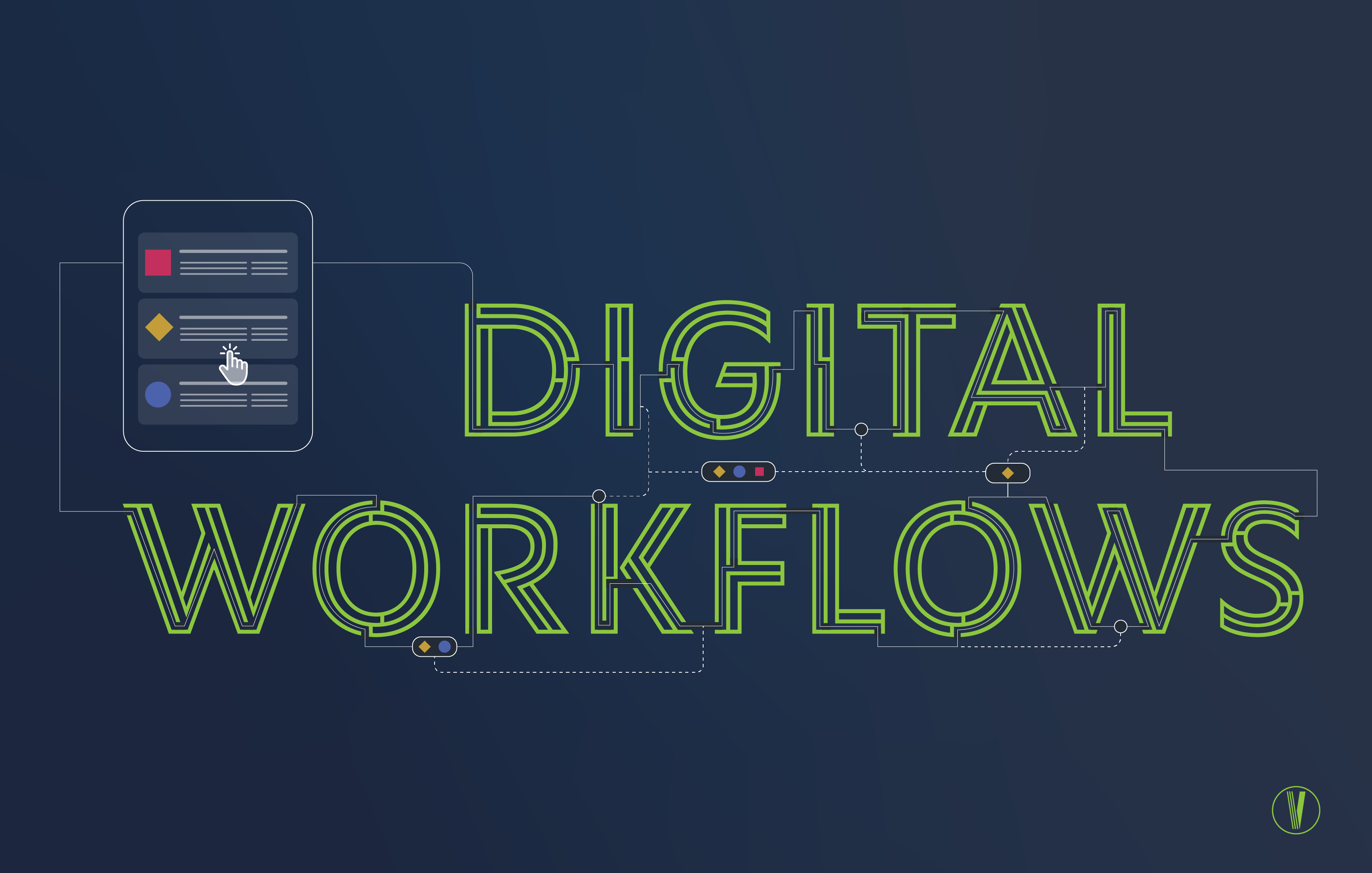3 min read
There’s a Workflow for That: How Automation Fuels Digital Initiatives
By: Marketing on Jul 5, 2022 2:17:33 PM

It’s true people are at the heart of any major transformation. Despite this, businesses have yet to maximize the value of digital transformation initiatives. Research from IDC shows that companies across the globe will invest at least $6.8 trillion dollars in digital transformation by 2023, but many executives have yet to see the payoff (Harvard Business Review).
Digital workflows and a new mindset are the missing links.
Accelerate, Don’t Transform
Transformation implies there is a beginning, a middle and an end state. But with how quickly technology evolves and the rapid pace at which markets change, organizations should adopt the mindset of acceleration over transformation.
The need for this mindset became more apparent during the pandemic, where customer and employee demands seemed to change almost daily. Flexibility and using quick, iterative approaches are more successful for digital initiatives than multi-year, multimillion-dollar, highly ambitious digital transformations; they just don’t allow for enough flexibility to react to the changing times we know today.
Rather than a one-and-done transformation, digital acceleration fosters a culture of continuous improvement. Technology leaders and digital teams are constantly evaluating, updating and/or improving tools and technologies to solve challenges and meet consumer and employee demands quicker.
The acceleration mindset lays the digital foundation but to make it sturdy, intelligent digital workflow platforms like ServiceNow are necessary to keep it intact.
The Missing Link: Digital Workflows
Digital workflows and the platforms that power them create smarter, more connected enterprises. These platforms empower everyone—from marketing and HR to IT—to solve problems and launch new digital initiatives, quickly, and at scale.
Automation unlocks the value of digital initiatives and is now viewed as the driving force behind today’s digital enterprise. Gartner forecasts the worldwide market for automation platforms and technologies will reach $596.6 billion by the end of this year and that through 2024, operational costs will lower by up to 30 percent from the use of these tools.
So, what exactly is a digital workflow?
The concept of a workflow is nothing new. But innovative technologies and mature platforms like ServiceNow include advanced features, scalable architecture, robust integration tools and embedded AI, making workflows more intelligent and interconnected across the enterprise. This lets organizations extend or create new digital workflows across the enterprise, eliminating silos while freeing up teams to work on higher value projects that drive innovation. They offer flexibility so organizations can create the best experience for employees and customers, or in disruptive situations as experienced during the pandemic, a better, quicker way to respond.
In fact, research via ZDNet shows top automation priorities this year include improved operational efficiency, improved productivity and better-connected experiences for employees and customers.
Quantifying the Benefits
Digital workflows are essentially a chorus of processes working together to achieve collective results: increased productivity, improved satisfaction and growth. Highly automated companies and those that embrace digital workflows see an increase in error reduction. These technologies also enable remote work and promote transparency, which is key in today’s hybrid world.
In fact, data from Lawless Research via a recent ServiceNow blog found highly automated companies are 2.5 times more likely to have higher revenue growth year-over-year relative to their competitors, and of the executives and knowledge workers surveyed, 76 percent said digital workflows improve their organization’s competitiveness. Eighty percent of employees said digital workflows boost productivity, streamline approvals and simplify processes, and 72 percent of employees surveyed said digital workflows improve customer satisfaction.
Automation gives teams the power to efficiently delegate manual processes, removing tedious tasks that slow down work. This, coupled with an accelerated mindset, also creates the opportunity to closely examine existing business processes, identifying redundant or obsolete steps, optimizing efficiencies across the enterprise. This then gives everyone in the organization more time to work on high-value projects that drive innovation, growth and revenue.
After all, time is the most valued commodity we have today, making digital workflows and automation the key to maximizing the ROI of digital initiatives.
Ready to unlock the value of your digital initiatives? Contact us to get started.
Related Posts
RPA: It's a mindset
Robotic Process Automation (RPA) is not just a technology solution; it is a mindset. An...
How to Build a Future-Proof Data Strategy for Digital Transformation
Gain a better grip on blockchain
Bitcoin was born like a shot into the wild, wild west of the “next Internet.” Yet, even after all...
